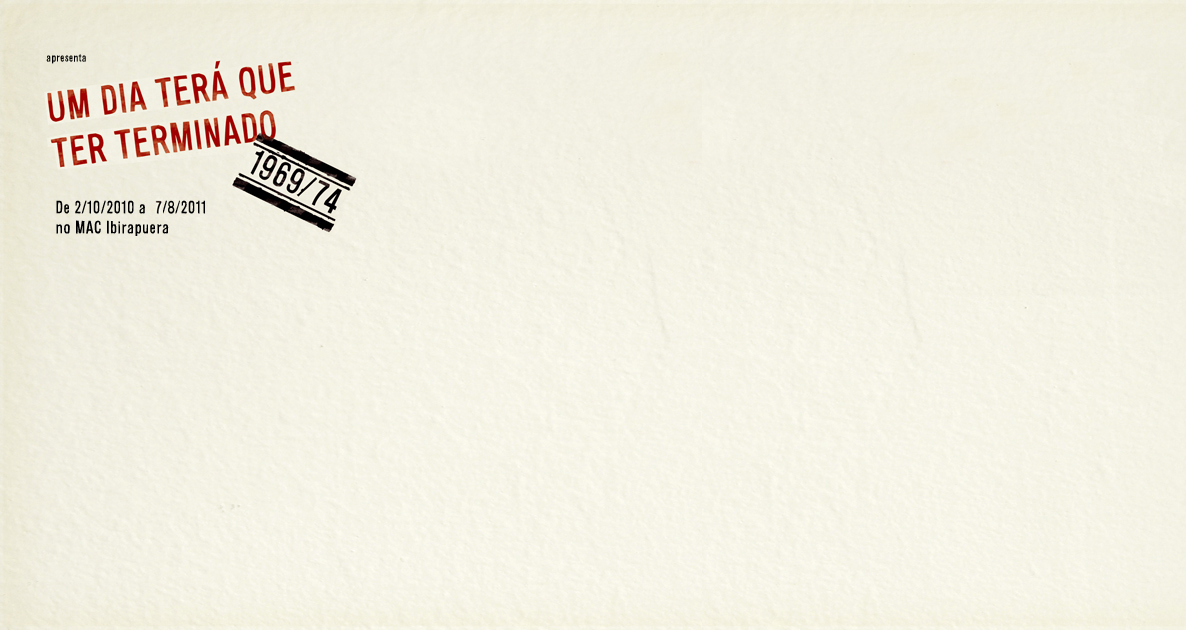


One Day, It Will Have To Be Over 1969/74 is the second exhibition of a series of three, which takes as its main aim to study the making of the collection of the Museum of Contemporary Art of the University of São Paulo (MACUSP), focusing on Brazilian art produced in the context of the military dictatorship (1964-1985). They were conceived to cover three different moments: 1964-1968; 1969-1974 and 1975-1985. These chronological boundaries were defined by local political context, taking respectively into consideration the establishment, the recrudescence, and distention of the military regime. These are two crucial decades of the recent history of the country, on which much is still to be said, especially in the field of artistic institutions.
MAC USP was founded in April, 1963, a year before the military coup settled in 1964. In the first exhibition of the series, we questioned the origins of the collection of contemporary art of the museum in the beginning of dictatorship. In this second exhibition, we focus on how the collection grew in the cruelest years of the regime, before the first signs of the political opening were felt. The group of works that entered the collection of MACUSP between 1969 and 1974 points, among other things, to the creation and development of a net of mail art exchange, which capacity to disrupt obstacles was inversely proportional to political and ideological repression experienced in that moment. Making use of this net some exhibitions were organized, notably Prospectiva 74. The collection of the museum was thus gaining a great international representativeness in contemporary art. It is still important to observe in the works on show strategies used in the elaboration and circulation of many modalities of artists publications, which redefined the modernist concept of artwork.
Between 1973 and 1974, MAC USP presented video art works for the first time in Brazil. The museum then rose as museum-laboratory, welcoming experimentations undertaken by the artists often in the museum itself. The fusion between space of artistic contemplation, creation and experimentation was at the core of the project of director Water Zanini (1963-1978). Photography was introduced not only in its direct form, but mainly as appropriated image, reworked in various artistic proposals. At the same time, and side by side with more experimental works, MACUSP, as a democratic space, continued to welcome and exhibit more traditional manifestations of art.
One of the works in the exhibition, “São Sebastião – Marighella” [Saint Sebastian – Marighella], by Sérgio Ferro, was chosen as emblematic of the role the museum played in those years. In a letter addressed to Walter Zanini, the artist, in the imminence of departing to his exile, asks that his work be protected by MAC USP and expresses his hope that dictatorship comes to an end. So, more than showing a group of works, the exhibition One Day, It Will Have To Be Over 1969/74 searches to reveal the latent struggles in the very constitution of the museum, committed in maintaining a resistance space concerned with research and experimentation, an attitude that in nowadays society of spectacle is subject to other risks.